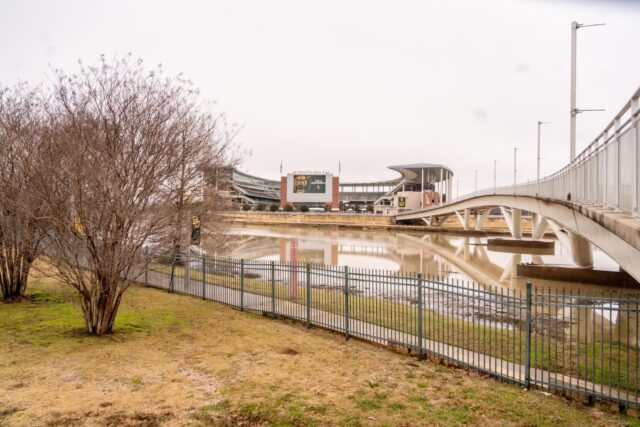By Erika Kuehl | Staff Writer
What happens when the world goes dark for four minutes and 13 seconds? We party.
April 8 will be the last time a total solar eclipse passes over Texas until the year 3000. To celebrate, Baylor University, Lowell Observatory, Discovery and the City of Waco are collaborating in Eclipse Over Texas: Live from Waco.
Sonja Garcia is the eclipse event coordinator with Lowell Observatory. She said along with interactive activities and 26 science presentations, the STEAM Zone will feature booths from Lowell Observatory, NASA, the Baylor physics department and the Mayborn Museum.
“We’re going to have telescopes peppered throughout the event, which is super fun,” Garcia said. “We have amateur astronomers who are the most fun because they’re so excited and so enthusiastic. They bring their telescope, and they set it all up, and they allow people to look at the sun through their telescope, which is a really nice addition to our events.”
Located at Touchdown Alley right next to McLane Stadium, the event will have food trucks on site and protective glasses to view the eclipse. Garcia said they expect 15,000 to 20,000 people to attend the event. With such a large crowd, she said security is in place.
“We are working with Baylor and Waco really closely on an emergency management plan, and we’re going to have lots of law enforcement,” Garcia said. “Local law enforcement will be present inside the event and around the event area.”
Garcia said the eclipse is special because the totality — the point when the sun is completely blocked — will be longer in Waco than in other places in the country.
“We will have several solar astronomers on site from both Baylor and Lowell Observatory,” Garcia said. “And we will have at least one, maybe two solar astronomers guiding the entire audience as far as when it’s safe to take off your glasses for totality and then when you need to put it back on and for telescope viewing.”
Garcia said anyone viewing the eclipse should purchase ISO-certified solar eclipse glasses. Totality begins at 1:38 p.m., and she encouraged those viewing to go outside a minute before.
“The sky will turn dark,” Garcia said. “The animals and nature, wildlife kingdom will start behaving like it’s nighttime, and there is nothing like it. There is nothing like a total solar eclipse. I cannot emphasize that enough. And I am not a geek. I do not speak out on stuff like this. And it just chokes you up. It really chokes you up, especially also if you’re watching with other people and feed off that energy.”
Krista Brinser, senior director of external affairs at Baylor, is part of the communication relations team for the event and worked to connect Baylor and the City of Waco to put it on.
“It’s a once-in-a-lifetime experience outside of it happening for a significant amount of time in Texas,” Brinser said. “These things do not happen every day. They are a rare phenomenon, no matter where you’re located. People travel from all over the globe to different locations where there’s a total solar eclipse, so we are blessed that this is happening in our backyard. The fact that we’re combining the expertise of Baylor academics and an observatory partner from Flagstaff — not only will [you] have a once-in-a-lifetime opportunity to see an eclipse, you’re having a once-in-a-lifetime access to the science.”
Tickets can be purchased online. The day of, parking will open at 6 a.m., with gates opening at 8 a.m. The event will last from 10 a.m. to 4 p.m., with the partial eclipse beginning at 12:20 p.m. and ending at 3 p.m.



